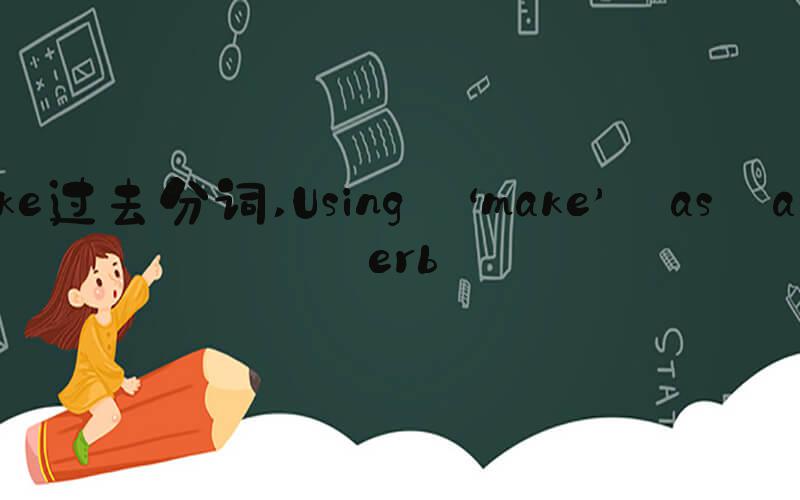AI答案
 Introduction
IntroductionWhen we think of the word ‘make’, we think of creating or producing something. In grammar, the past participle form of ‘make’ is ‘made’. However, there is another form that is commonly used – the past participle form of ‘make’ is also ‘made’. In this article, we will explore the different ways in which ‘make’ can be used as a verb and its various forms.
Using ‘make’ as a verbThe verb ‘make’ can be used in many different ways. Here are a few examples:
To create: We can make a painting, a sculpture, or a piece of music.
To prepare: We can make a meal, a drink, or a dessert.
To cause: We can make someone laugh, cry, or angry.
To earn: We can make money, a profit, or a living.
There are many other ways in which ‘make’ can be used. Its uses are varied and depend on the context in which the word is used.
The past participle of ‘make’The past participle of ‘make’ can be ‘made’ or ‘make’. For example:
‘Made’: I have made a lot of progress in my studies.
‘Make’: I have never been able to make myself understood.
The use of ‘made’ and ‘make’ is dependent on the context in which the word is used.
The continuous form of ‘make’The continuous form of ‘make’ is ‘making’. This form is used when something is happening continuously or when the action is ongoing. For example:
Present continuous: I am making dinner right now.
Past continuous: We were making a lot of noise last night.
Future continuous: They will be making preparations for the party all day.
The continuous form of ‘make’ is used to indicate ongoing action.
Phrases using ‘make’There are many phrases that use the verb ‘make’ in English. Here are a few examples:
Make do: To make do means to use whatever is available or to manage with what is at hand. For example – We didn’t have any bread so we had to make do with crackers.
Make sense: This phrase is used to indicate that something is logical or understandable. For example – His explanation didn’t make any sense to me.
Make up: This phrase can be used to mean to create something or to reconcile with someone. For example – She is very good at making up stories. We had a fight, but we made up later.
Make an effort: To make an effort means to try hard to do something. For example – I will make an effort to be on time for the meeting.
Phrases using ‘make’ add to the richness of the English language and give us more ways to express ourselves.
ConclusionThe verb ‘make’ has many different uses and forms – ‘made’, ‘make’, and ‘making’. Its varied uses add to the richness of the English language. Understanding the different forms and uses of ‘make’ can help us communicate more effectively in English and expand our vocabulary.
